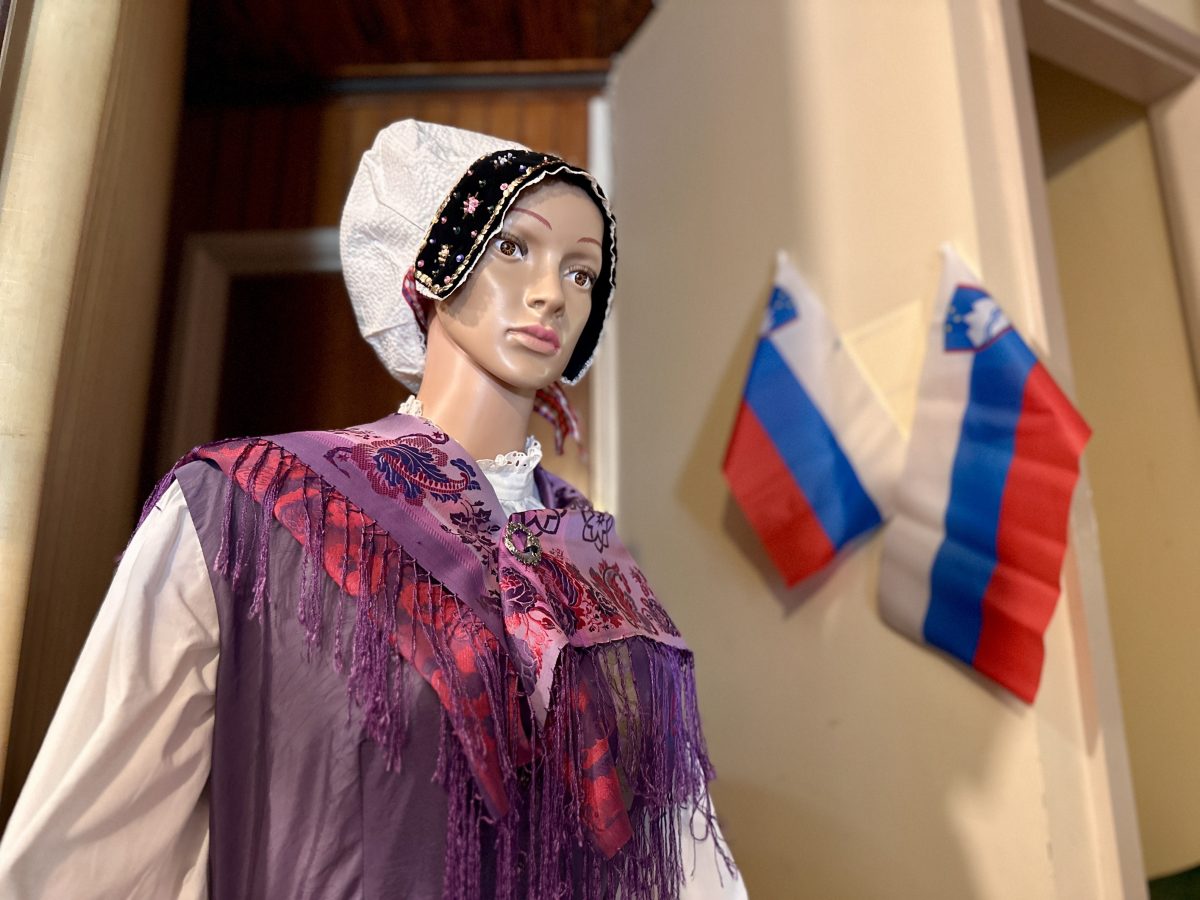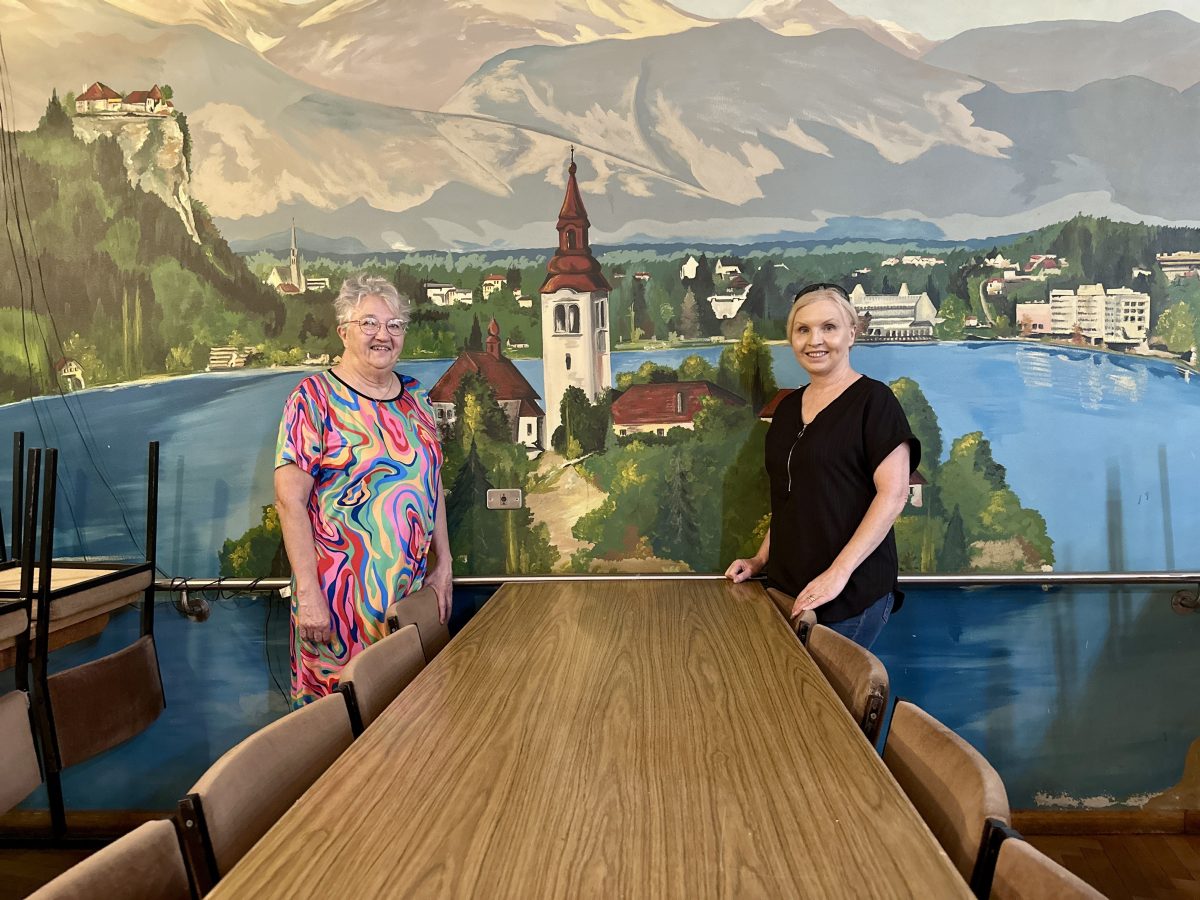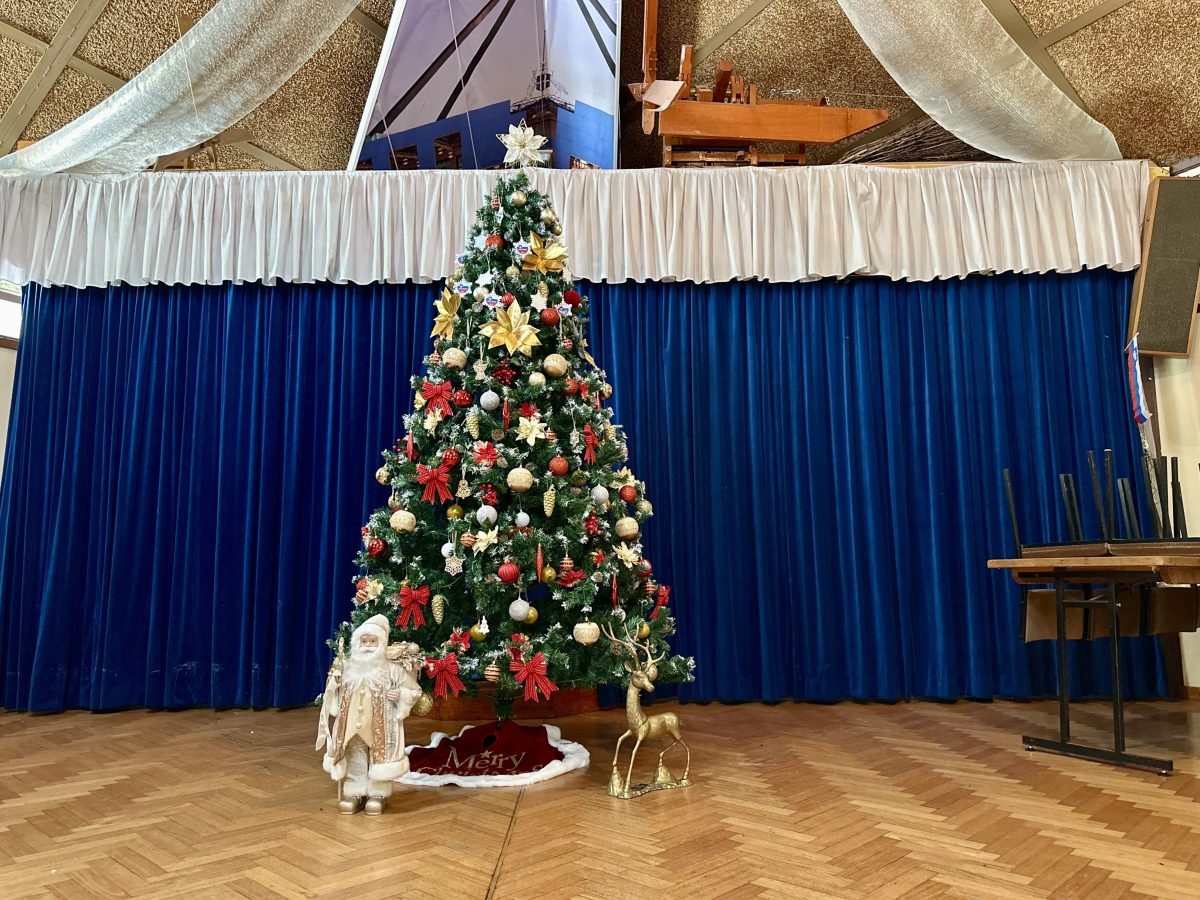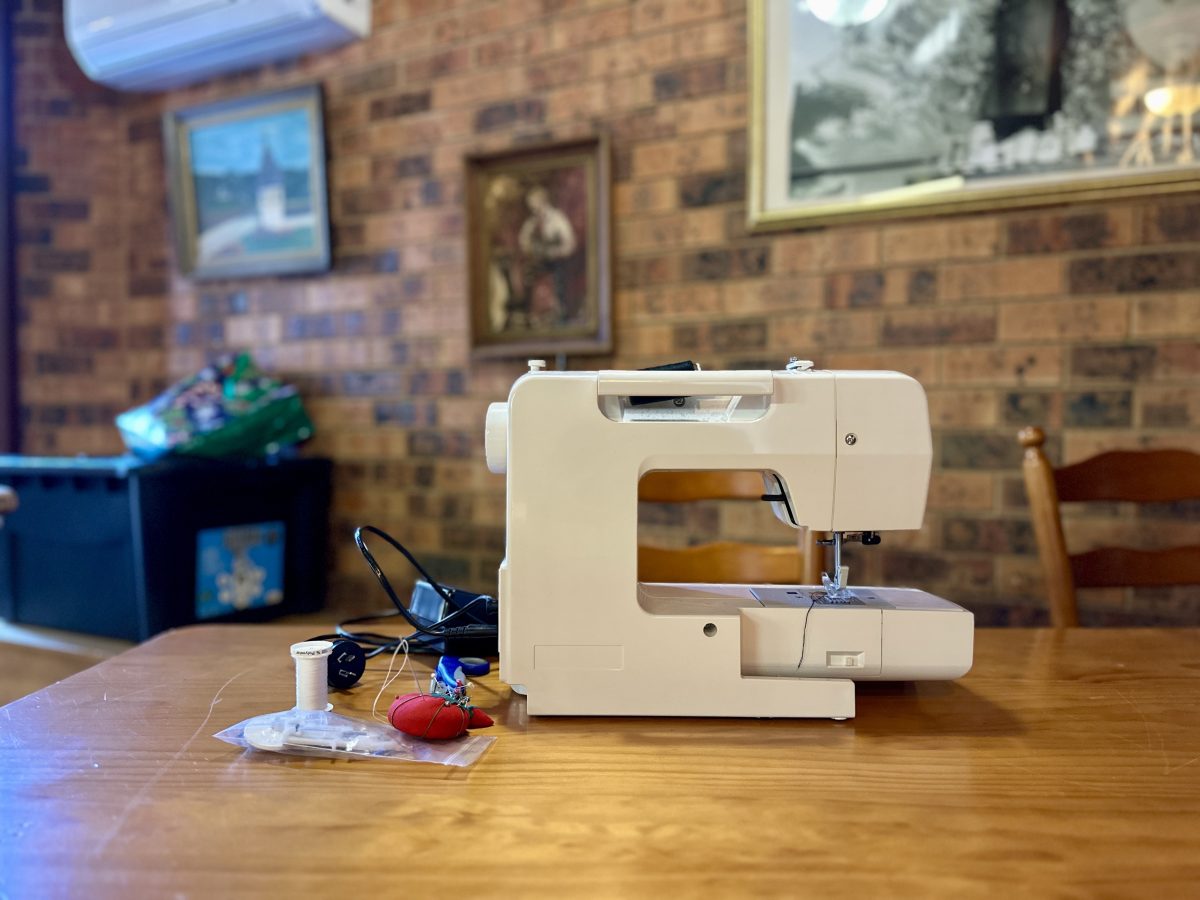
One of the few costumes left at the Slovenian-Australian Association (SAA) clubhouse in Phillip. Photo: James Coleman.
Have extra fabric lying around the house? Know how to use a sewing machine? Heck, just know how to put a button on?
The Slovenian-Australian Association (SAA) would love to hear from you.
On a night in September, SAA president Natasha Kapusin received a phone call from the club’s neighbours on Irving Street in Phillip to say they’d interrupted a burglary of the basement on their property.
The thieves got away – on further inspection – with almost the entirety of the club’s collection of national costumes.
It’s left the 400-plus members reeling.
“Who knows the mind of someone who would do something like this,” SAA treasurer and vice-secretary Josephine Breznik says.
“There’s no monetary value to them. It just seems a pointless theft.”
Whatever the motivation, it couldn’t have come at a worse time.
Next year it will be 50 years since Canberra’s first National Multicultural Festival (before it was even called that) was held at the SAA. The club has been a mainstay ever since, joining the parades and selling their famous kransky sausages, all while sporting traditional dress.
And the next festival is now only a matter of weeks away, in February 2025.

Slovenian national costumes on display at a previous Multicultural Festival. Photo: Slovenian-Australian Association (SAA).
“We’ve checked all the op shops, we’ve got people checking online marketplaces, and we’ve notified all the Slovenian associations and clubs throughout Australia just in case the costumes pop up there,” Natasha says.
The club is running regular “sewing bees” between now and the Multicultural Festival to craft at least 10 new costumes from scratch, and is asking if anyone in the community might be able to help.
“We need people who can sew, iron, make headpieces, cut out fabric, organise sustenance,” Josephine says.
“If you can’t help by coming to our sewing bees, we can use a donation of nibblies/soft drinks for our evening sewing bees, or dessert for our Saturday sewing bees, or donations to help pay for the replacement fabrics and other necessities to make genuine national costumes.”

Slovenian-Australian Association (SAA) treasurer and vice-secretary Josephine Breznik with president Natasha Kapusin. Photo: James Coleman.
Like many of Canberra’s multicultural social clubs, the SAA was founded in the 1950s by families who emigrated to Australia after World War II, when the Federal Government provided free passage in exchange for two years’ work.
For instance Josephine’s grandfather, a carpenter and instrument maker by trade, was assigned to the steelworks in Port Kembla and then Canberra, after he injured himself on the job.
“He did cabinetry in places like the old Canberra Times building in Civic, and some of the woodwork in the chapel at the Boys’ Grammar School,” Josephine recalls.
Many of these families brought their traditional dress with them and then donated it to the club.
“There are 10 different regions in Slovenia, each with their own different dress, and we had a costume from each region, but there are also ones from folk dancing, as well as the ones we’d wear at the Multicultural Festival, serving behind the bar,” Josephine explains.
Others were sown by a seamstress who came over from Slovenia to sew the dance costumes.
So not only does each costume tell its own story, the collection also plays a crucial role in the club’s regular events – most recently, ‘Sir Nicholas Blessings’.
“Sir Nicholas is basically our version of Santa Claus,” Josephine explains.
“The feast is on 6 December, and we have a barbecue on the Sunday closest to that day and someone dresses up as Sir Nicholas and we’ll have a little boy dressed as an angel and a little boy dressed as a devil.”

Sir Nicholas at the base of the club’s Christmas tree. Photo: James Coleman.
Oher events like Saint Martin’s Day normally attract plenty of nearby residents from the apartments in Woden for a taste of Slovenia’s famous wine, not to mention the beer and schnapps.
Josephine says so far, the call for help has received a “very good response”.
“We’ve had people who have provided heaps of material, others coming to sew, others just to iron, some to cut out costumes, some to organise supper or even just top up the water jug.
“We’ve also had a few donations from people who say they can’t help in any other way but they’ll donate.”

The club will be holding sewing bees between now and February. Photo: James Coleman.
Many of the club’s members are also scrambling to source fabrics from elsewhere, either buying from overseas or driving up to Sydney.
But there’s still a lot of work to be done in not much time.
“And if anyone knows anything, please let us know,” she says.
“We want to bring our national treasures back home where they belong.”
Contact the Slovenian-Australian Association via email (secretary@slovenianclubcanberra.org.au) or phone (02 6282 1083) for more information on how you can help. Donations of money towards material or food costs are also welcome.












